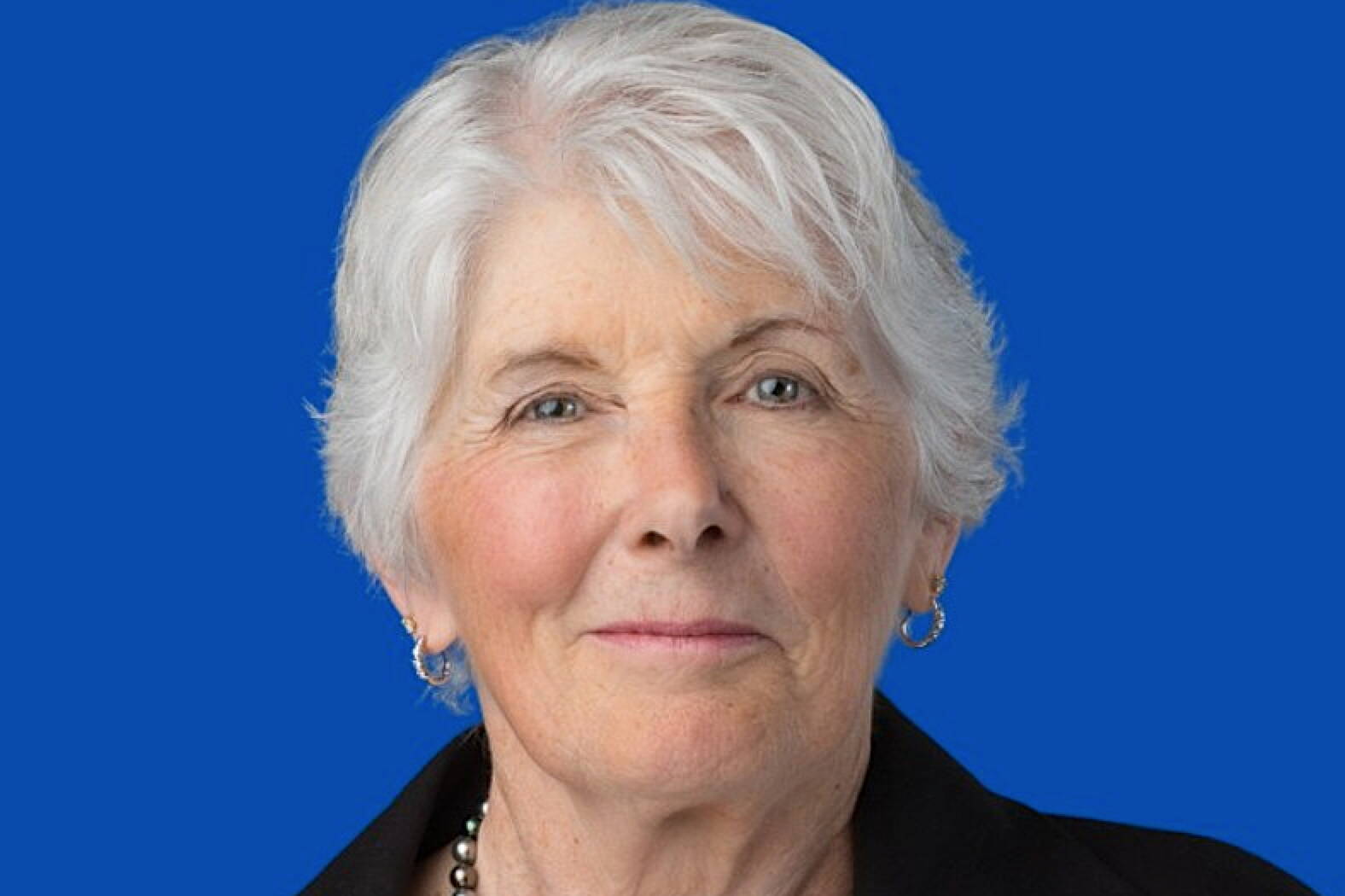This is the second part of a three-part series of interviews with U.S. Senate candidates.
Pat Chesbro tells her social media followers getting 16% in the latest poll is an encouraging sign she can win the U.S. Senate race about three weeks from now, but when pressed about it shows she’s not an unconventional sibling to the current clan of election deniers.
The Democratic educator on a shoestring budget facing two Republicans with multi-million dollar war chests — including the 20-year incumbent who’s among the most nationally prominent members of Congress’ upper chamber — said in an interview Wednesday “we knew from the beginning we were facing stronger campaigns.” But she said polls showing her a distant third in the race also show neither Republican has a majority in the state’s new ranked choice voting system, which becomes a huge factor when her voters rank their second-choice candidate.
“Either of those candidates will need the votes from me,” she said. “I think that is a powerful thing for Democrats in this state. Yes we have a voice and our voices need to be taken into account.”
Among the areas Chesbro says her actions would have differed than the incumbent recently are approving a block of child care funding in the Build Back Better Act, approving a 50-100% discount on energy-efficient products the Democratic-led Senate passed in August, a more cautious approach to Arctic resource development and “I would have been more discerning about those Supreme Court justices.”
Chesbro discussed the campaign by phone from her home in Palmer, with no events planned during the day since “one of the things that happens when you’re fiscally conservative is you don’t have a lot of money to go everywhere.” In contrast, incumbent Sen. Lisa Murkowski started her day at dawn at an event in Sitka and then visited several other Southeast Alaska communities during the day before flying to Anchorage for a midnight arrival to continue a similar pace the next day.
The Democrat, whose 25 year-career at Palmer High School includes nine as principal, last ran for office in 2014 as a candidate for the Alaska State Senate. She finished with about 7% of the vote in this year’s Aug. 16 primary which, while enough for her to be among the top four candidates advancing to the general election (fourth-place candidate Buzz Kelley dropped out soon afterward), was about 10% below her polling numbers at the time and it appears virtually all of those voters opted for Murkowski.
Polls and pundits since then have stated a similar outcome where Murkowski gets a majority of Chesbro’s second-choice votes is the most likely outcome since the incumbent is seen as a moderate and the other candidate is Donald Trump-backed challenger Kelly Tshibaka. The differences on issues (and arguably personalities) are far greater between Chesbro and Tshibaka than the Democrat and Murkowski.
Chesbro, for instance, said she is concerned about “crazy school issues” taking shape in the Mat-Su area such as banning transgender students from using bathrooms and locker rooms that match their chosen gender identity, which she calls legislation and language being used to “demonize people.” Tshibaka is embracing a so-called parents’ bill of rights that supports such policies.
Gun rights are another area where the challengers are far apart, with Chesbro on the side favoring more regulation. Advocating for restrictions is a surefire provocation for a lot people in a mostly wilderness state that mostly votes for Republicans, but Chesbro consistently asserts that while her stance is personal, due to the murder of her daughter, it is also reasonable and constitutional.
“I don’t think it violates the Second Amendment to require safety classes,” she said. “I don’t think trigger guards are a violation.”
Keeping guns locked in storage separate from ammunition are legislative goals Chesbro cites, in addition to safety training.
“I’m not trying to take guns away. I have guns in my house,” she said. But when it comes to assailants using guns “we can’t just blame mental health” for their actions.
Similarly, while Chesbro shares some agreement with her opponents about the potential resource riches in the Arctic regions of the state, she said one of her biggest concerns is the impacts of warming in the region due to climate change.
“That’s one more of those overarching issues that needs to be addressed in many ways,” she said. “How do we make that a focus, no matter how we do business? I think the Arctic is a real opportunity for the world, but we need to be careful how we exploit it.”
Similar prudence is needed when addressing other current critical issues such as lack of affordable housing and workforce shortages, Chesbro said. She said she favors federal spending to help ensure availability of child care services, for instance, while some approaches by lawmakers in recent years ranging from tax reductions to who receives funds have gone awry.
“We talk about trickle-down economics,” she said. “I think we have to have trickle-down concepts of what is worthy of funding. We want to help support child care experts.”
If Chesbro does win the election, she could face a challenge at least in getting any of her agenda enacted if Republicans take control of the Senate, to say nothing of a Republican winning the presidential election in 2024. But she said while serving in the minority “might seem futile at times,” solving what ails the state and country right now means “we can’t be all-or-none people.”
“I’m standing up right now because I think it’s important to say what believe,” she said. “I think there’s different methodologies to approach these things.”
• Contact reporter Mark Sabbatini at mark.sabbatini@juneauempire.com

